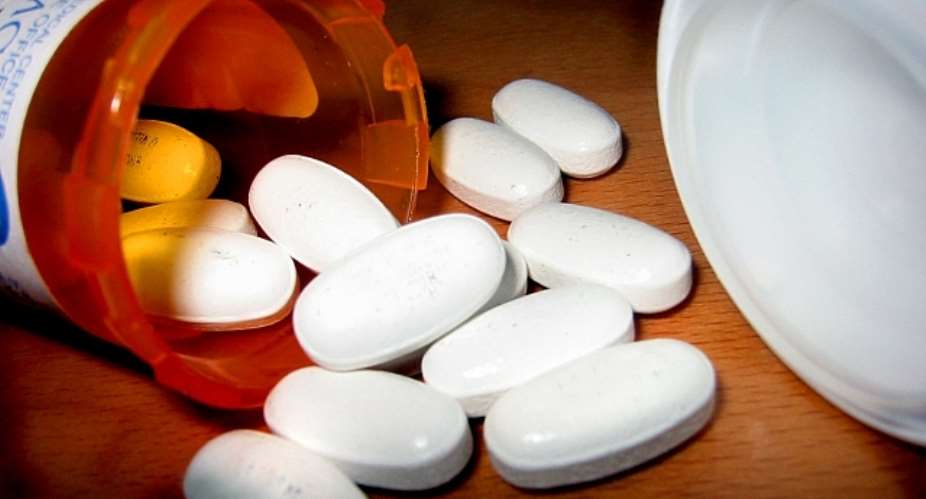Ghana's pharmaceutical industry risks being flooded by fake or ineffective products despite the best intentions and checks and balances of the Food and Drugs Board (FDB), if urgent steps are not taken to control the foreign invasion of the importation, marketing and distribution of finished pharmaceutical products.
Even as indigenous pharmaceutical companies who had for over four decades imported and marketed hundreds of such products into household brands are now reeling under the pressure of heavy-handed bully tactics of a new mainly Indo-Chinese cartel, lack of controls means Ghana is at the peril of importing unwholesome or fake drugs.
Philip, Gokals-Laborex, Forewin, Supra and Worldwide Healthcare having realised the market was fertile for good business have managed to grab most of the importation, marketing and distribution agency contracts from the indigenous companies who had risen through dint of hard work
Our investigations reveal that efforts by the Indigenous Pharmaceutical Business Association (IPBA) in conjunction with the Ghana Investment Promotion Centre to amend the GIPC act to protect indigenous business is facing strong opposition from both the Ministry of Trade and ironically the Parliamentary Committee on Trade and Industry.
An IPBA source who spoke to us on a condition of anonymity said though the GIPC had sought an amendment to Clause 26 of the GIPC Act requiring that only indigenous pharmacos can import, market and distribute finished products on the Ghanaian market majority of members in the parliamentary committee have been forcefully opposing the amendment bill and are rather citing WTO convention and so-called retaliation from other countries.
The IPBA officials said the arguments were lame because it was normal practice for most countries to protect their pharmaceutical industries from foreign influence with the United States and neighbouring Nigeria being typical examples.
'We are not saying that foreign interests cannot come into the industry, but they are welcome in the still almost virgin market for the manufacturing of drugs. Why are they shying away from that area? Are they afraid of the watchful eye of the FDB when they produce here?' The IPBA official asked.
He noted that with over 200 indigenous pharmaceutical companies already established in the business there was no question of Ghana lacking capacity in the area of import, marketing and distribution and allowing foreign interest will only lead to the flight of foreign currency as such organisations have to repatriate most of their profits. If they set up manufacturing units here however they will impact positively through lower costs of products and employment opportunities to Ghanaians.
'How can just a handle of foreign companies conspire to take over the business of over 200 Ghanaian companies and our parliamentarians do not see the urgency to push for protective legislation? We may open our markets for various products but the health of our country cannot be compromised,' the IPBA official stated.
The IPBA summarised the treat of external involvement in Ghana's pharmaceutical industry in a memorandum to selected governmental institutions on 14th July 2008. The memo read in part:
'The current high interest in Ghana's pharmaceutical industry is a cause for grace concern not least because of the national strategic importance of the sector. A country unable to produce and distribute needed essential and critical medicines in adequate quantities is at risk and extremely exposed to external unpredictable forces. Whilst an investment in the pharmaceutical sector is necessary and desirable, such investment is required in manufacturing and research and development.
'In the face of global threats including H5N1 (avian flu) outbreaks; each country should be in the position to secure in their national interest, adequate stocks of needed medicines and vaccines. This can only be done if the country is strategically positioned to manage its own pharmaceutical sector without external, unpredictable and sometimes outright hostile forces dictating developments in the sector.'
What is the Nigerian position on protection the local pharmaceutical industry and why? What has the GIPC done so far since the campaign of the IPBA commenced in 2008? Is parliament falling victim to the international lobby by the power international pharmacos?
Stay tuned.





 Chairman Kingsley Owusu Brobbey calls for Privatization of Electricity
Chairman Kingsley Owusu Brobbey calls for Privatization of Electricity
 Train accident: Four more grabbed and remanded
Train accident: Four more grabbed and remanded
 Gov't to consolidate cash waterfall revenue collection accounts
Gov't to consolidate cash waterfall revenue collection accounts
 Gov't to settle lump sum for retired teachers by April 27
Gov't to settle lump sum for retired teachers by April 27
 Former PPA CEO granted GH₵4million bail
Former PPA CEO granted GH₵4million bail
 Dumsor: The darkness has exposed you; you’ll go down as the worst in Ghana’s his...
Dumsor: The darkness has exposed you; you’ll go down as the worst in Ghana’s his...
 Dumsor: The ‘incompetent’ person provided a timetable whiles those who came to s...
Dumsor: The ‘incompetent’ person provided a timetable whiles those who came to s...
 Defend, ensure NPP’s good works are ‘sold’ and highlight the ‘bad’ state of the ...
Defend, ensure NPP’s good works are ‘sold’ and highlight the ‘bad’ state of the ...
 Bawumia will rank high ahead of Mahama in any anti-corruption test — Salam Musta...
Bawumia will rank high ahead of Mahama in any anti-corruption test — Salam Musta...
 NPP trying to bribe us but we‘ll not trade our integrity on the altar of corrupt...
NPP trying to bribe us but we‘ll not trade our integrity on the altar of corrupt...
